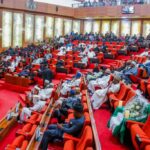Economic development is a term that economists, politicians, and others have used frequently since the 20th Century. The concept, however, has been in existence in the West for centuries. The term refers to economic growth accompanied by changes in output distribution and economic structure. It is concerned with quality improvements, the introduction of new goods and services, risk mitigation and the dynamics of innovation and entrepreneurship.
Economic development has direct relationship with the environment. Whereas economic development is a policy intervention endeavour with aims of economic and social well-being of people, economic growth is a phenomenon of market productivity and rise in GDP. Consequently, as an economist Amartya Sen points out, “economic growth is one aspect of the process of economic development.
According to Ranis et al., economic growth and development is a two-way relationship. According to them, the first chain consists of economic growth benefiting human development, since economic growth is likely to lead families and individuals to use their heightened incomes to increase expenditures, which in turn furthers human development. At the same time, with the increased consumption and spending, health, education and infrastructure, systems grow and contribute to economic growth.
Economic development typically involves improvements in a variety of indicators such as literacy rates, life expectancy, and poverty rates. Due to the fact that GDP alone does not take into account other aspects such as leisure time, environmental quality, freedom, or social justice; alternative measures of economic well-being have been proposed. Essentially, a country’s economic development is related to its human development, which encompasses, among other things, health and education. These factors are, however, closely related to economic growth so that development and growth often go together.
Since economic development and growth cannot be discussed in isolation of a referenced community, society or nation, efforts will be made in this lecture to relate essentially to the economic development parameters in the Nigerian nation.
Nigeria’s economic aspirations have remained that of altering the structure of production and consumption patterns, diversifying the economic base and reducing dependence on oil, with the aim of putting the economy on a part of sustainable, all-inclusive and non-inflationary growth. The implication of this is that while rapid growth in output, as measured by the real gross domestic product (GDP), is important, the transformation of the various sectors of the economy is even more critical. This is consistent with the growth aspirations of most developing countries, as the structure of the economy is expected to change as growth progresses.
Successive governments in Nigeria have since independence in 1960, pursued the goal of structural changes without much success. The growth dynamics have been propelled by the existence and exploitation of natural resources and primary products. Initially, the agricultural sector, driven by the demand for food and cash crops production was at the centre of the growth process, contributing 54.7 per cent to the GDP during the 1960s. The second decade of independence saw the emergence of the oil industry as the main driver of growth. Since then, the economy has mainly gyrated with the boom-burst cycles of the oil industry. Government expenditure outlays that are dependent on oil revenues have more or less dictated the pace of growth of the economy. Looking back, it is clear that the economy has not actually performed to its full potential, particularly in the face of its rising population.
The Nigerian economy has grossly underperformed relative to her enormous resource endowment and her peer nations. It has the 6th largest gas reserves and the 8th largest crude oil reserves in the world. It is endowed in commercial quantities with about 37 solid mineral types and has a population of over 170 million people. Yet economic performance has been rather weak and does not reflect these endowments. Compared with the emerging Asian countries, notably, Thailand, Malaysia , China, India and Indonesia that were far behind Nigeria in terms of GDP per capita in 1970, these countries have transformed their economies and are not only miles ahead of Nigeria, but are also major players on the global economic arena.
The major factors accounting for the relative decline of the country’s economic fortunes are easily identifiable as political instability, lack of focused and visionary leadership, economic mismanagement and corruption. Prolonged period of military rule stifled economic and social progress, particularly in the three decades of 1970s to 1990s. During these years, resources were plundered, social values were debased, and unemployment rose astronomically with concomitant increase in crime rate.
However, since 1999 economic growth in Nigeria has risen substantially, with annual average of 7.4 per cent in the last decade. But the growth has not been inclusive, broad-based and transformational. The implication of this trend is that economic growth in Nigeria has not resulted in the desired structural changes that would make manufacturing the engine of growth, create employment, promote technological development and induce poverty alleviation. Available data has put the national poverty level at 54.4 per cent. Similarly, there has been rising unemployment with the current level put at 19.7 per cent by the National Bureau of Statistics (NBS).
The Nigerian economy is import dependent with very little non-oil exports. It relies heavily on crude oil and gas exports with other sectors trailing far behind. For example, crude oil accounts for about 90 per cent of foreign exchange earned by the country while non-oil exports account for the balance. The economy is, therefore, susceptible to shocks in the oil industry. In recent times, these shocks have been caused by either developments in the International crude oil market or the restiveness in the Niger Delta region of the country. Agriculture and other mining (besides oil and gas) have been abandoned to the rural poor. Economic and social infrastructure, especially power is grossly dilapidated. The power sector is generally recognized as a binding constraint on Nigerian economy. Poor corporate governance, both in the public and private sectors have led to high incidence of corruption and inequity in income distribution.
Although corruption is a global scourge, Nigeria appears to suffer particularly from it. Everyone appears to believe that the nation has a ‘culture of corruption’. Over the years, Nigeria has earned huge sums of money from crude oil, which appears to have largely gone down the sinkhole created by corruption.
The prospects for the Nigerian Economy depend on the policies articulated for the medium-to-long term and the seriousness with which they are implemented.
Mr. Kelikume, Managing Director, Laramitch Vigor Consults Ltd
Economic development and growth in Nigeria
Economic development is a term that economists, politicians, and others have used frequently since the 20th Century. The concept, however, has been in existence in…
LEARN AFFILIATE MARKETING: Learn How to Make Money with Expertnaire Affiliate Marketing Using the Simple 3-Step Method Explained to earn $500-$1000 Per Month.
Click here to learn more.
AMAZON KDP PUBLISHING: Make $1000-$5000+ Monthly Selling Books On Amazon Even If You Are Not A Writer! Using Your Mobile Phone or Laptop.
Click here to learn more.
GHOSTWRITING SERVICES: Learn How to Make Money As a Ghostwriter $1000 or more monthly: Insider Tips to Get Started. Click here to learn more.
Click here to learn more.
SECRET OF EARNING IN CRYPTO: Discover the Secrets of Earning $100 - $2000 Every Week With Crypto & DeFi Jobs.
Click here to learn more.



